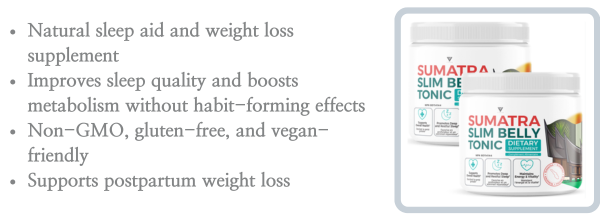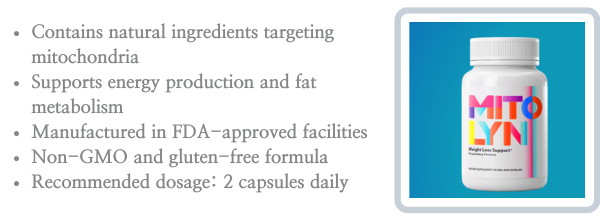
Losing weight isn’t just about obsessing over calories or denying yourself every little pleasure—truth is, it’s way more personal (and at times, honestly, kind of maddening) than we ever expect. Ever hop on the scale after slogging through another so-called miracle diet, hoping for a big change…only to be let down again? Ugh. I know that disappointment all too well. Weight loss “advice” can feel like it’s written in a foreign language—everyone’s shouting something different, and you’re left spinning your wheels. What if the secret to making progress wasn’t buried under all those complicated methods and hyped-up programs, but was actually just…less dramatic? There’s more to wanting to lose weight than just changing how you look. Most of us are honestly after a little more pep in our step, feeling good in jeans, or finally being able to chase the kids without feeling winded. We’re constantly pitched new “miracle” diets, all sold as the ultimate answer, but life’s way messier than a Pinterest meal plan. Go figure—the basics are almost laughably simple, even though the experts often make it feel impossible. The wild part? We all drift toward methods that sort of fit with our quirks—or just whatever we hope will finally work this time. Sometimes, you get desperate and latch onto a flashy promise, even when you know deep down it probably won’t stick. After riding that rollercoaster enough times, you start craving something less flashy and more livable. The real secret? It’s not about finding “the one plan,” but patching together a few crucial habits. That part’s backed up by the CDC too—they’re big on taking a close, honest look at why you want to change and where you’re starting from before diving in. Can’t argue with that; if you’re not clear on your own why, it’s hard to make any of it last.

Ever hop on the scale after slogging through another so-called miracle diet, hoping for a big change…only to be let down again? Ugh. I know that disappointment all too well. Weight loss “advice” can feel like it’s written in a foreign language—everyone’s shouting something different, and you’re left spinning your wheels. What if the secret to making progress wasn’t buried under all those complicated methods and hyped-up programs, but was actually just…less dramatic?
There’s more to wanting to lose weight than just changing how you look. Most of us are honestly after a little more pep in our step, feeling good in jeans, or finally being able to chase the kids without feeling winded. We’re constantly pitched new “miracle” diets, all sold as the ultimate answer, but life’s way messier than a Pinterest meal plan. Go figure—the basics are almost laughably simple, even though the experts often make it feel impossible.
The wild part? We all drift toward methods that sort of fit with our quirks—or just whatever we hope will finally work this time. Sometimes, you get desperate and latch onto a flashy promise, even when you know deep down it probably won’t stick. After riding that rollercoaster enough times, you start craving something less flashy and more livable. The real secret? It’s not about finding “the one plan,” but patching together a few crucial habits. That part’s backed up by the CDC too—they’re big on taking a close, honest look at why you want to change and where you’re starting from before diving in. Can’t argue with that; if you’re not clear on your own why, it’s hard to make any of it last.
So here’s the odd truth: the breakthrough isn’t locked away in some trendy pill or punishing bootcamp class. It’s always been hiding in plain sight. Sure, it’s still about managing the balance—what you eat versus what you burn—but let’s be real, nobody (except maybe professional athletes) is going to log every snack and crumb forever. When you fill up on meals that are genuinely satisfying and packed with good stuff, you actually stop craving all those extras that sneak in when you’re bored or hungry an hour after eating.
What surprises most people—no joke—is just how big a deal getting enough protein and fiber is. I had a friend who was always starving on her diet, and once she started making sure every meal included something with protein, the constant munchies just faded away. It sounds too easy, but that’s what worked.
Another thing nobody tells you? Those fuzzy, generic plans are a trap. If you swap out “I’m going to eat healthier” for something you can picture—“I’ll toss a handful of spinach in my omelet every morning this week”—it suddenly feels doable instead of dread-inducing.
And yes, let’s talk exercise. It totally helps, but you don’t have to turn into a gym rat. Moving on the regular keeps your muscles happy and your metabolism humming, sure, but most real progress happens in the kitchen. Setting reachable goals—think gradual, not a massive overhaul—actually sticks better. Healthline even points out that the most meaningful, lasting changes start with just one or two tweaks, not flipping your whole world upside down in a week. Funny how it’s those tiny, almost-boring shifts that quietly stack up and make the biggest difference.
If you take away anything, let it be this: easing into these changes—bit by bit, not all at once—makes the whole process less overwhelming (and honestly, less miserable). Forget the hype; the simple, steady path almost always wins out, even when it’s not as exciting as those wild diet headlines.

If you take away anything, let it be this: easing into these changes—bit by bit, not all at once—makes the whole process less overwhelming (and honestly, less miserable). Forget the hype; the simple, steady path almost always wins out, even when it’s not as exciting as those wild diet headlines.
Sources
-
10 weight loss lessons I wish I’d stumbled on earlier in life
-
How to start losing weight in a healthy way – CDC advice
-
23 Actually Useful Weight Loss Tips for Women – Healthline
Today’s related searches: how to set realistic weight loss goals, easy high protein meal ideas for weight loss, sustainable calorie deficit meal planning, daily healthy habits for weight management, tracking food intake for beginners
Each offers exceptional value and is designed to support your health in meaningful ways


